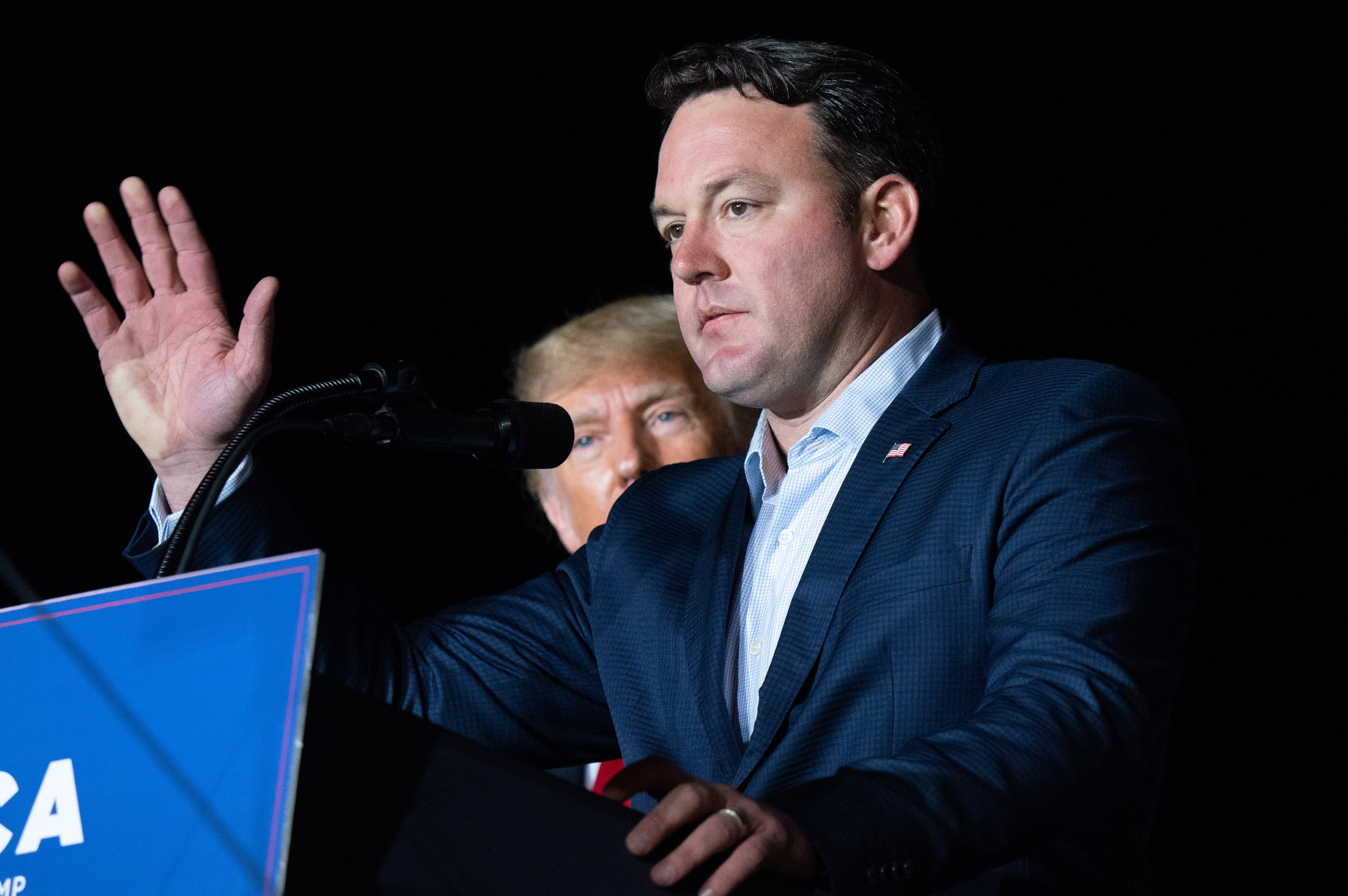Famous dads, family money give 2026 hopefuls an early edge
When Derek Dooley jumped into the U.S. Senate race in Georgia earlier this month, any questions of “Derek who?” were quickly followed up with an answer that stopped the guessing. “Vince’s son.”
Vince, of course, is Vince Dooley, the legendary University of Georgia football coach so iconic that the Bulldogs play their home games on Dooley Field across campus from a statue of Dooley himself.
But a more important family connection for the former University of Tennessee coach was not Derek Dooley’s father but his brother. Long ago, Daniel Dooley introduced his little brother to a friend who would eventually be instrumental to his run for U.S. Senate. That friend was Brian Kemp.
Fast forward nearly 40 years, and Derek Dooley isn’t the only son of a rich or famous family running for office in Georgia in 2026. In fact, he is just one of a slew of candidates getting an early leg up with family connections, family money, or both. In a battleground state with expensive media markets, any advantage makes a difference — and many have it.
The biggest prize is the governor’s race, where Lt. Gov. Burt Jones also may have the biggest early advantage. Although he refers to himself as a “small business owner” and did start a small insurance company years ago, Jones is also the son of Bill Jones, the Jackson-based businessman and Donald Trump donor who started a now-sprawling oil, gas, real estate and retail business. Thanks to his powerful connections and immense family fortune, Burt Jones had frontrunner status in the governor’s race before he ever kicked his off his campaign this week, complete with a $10 million loan he made to his campaign.
In addition to Jones and Dooley, there are also two sons of former Georgia congressmen on the ballot this year. U.S. Rep. Mike Collins, the son of the late U.S. Rep. Mack Collins, is running for the U.S. Senate, while former U.S. Rep. Jack Kingston’s son, Jim Kingston, is running for his dad’s old seat in Georgia’s 1st Congressional District on the Southeast Georgia coast.
While Collins rarely mentions his father’s Capitol Hill experience on the campaign trail, Kingston is playing up his father’s role, saying he was able to crisscross the district with his dad when he was little, “not as a spectator, but as a student.” Kingston’s connections have also made it possible to raise an impressive $850,000 within the first few months of his campaign, with none coming from his own pocket.
As much as a big name or deep pockets are sure to help candidates, they can also give opponents an opening to pounce. Attorney General Chris Carr filed a state ethics complaint against Jones for his $10 million loan, which has been dismissed. And Dooley is already getting pummeled by Republicans accusing him of being a failed coach with a famous name. In the meantime, U.S. Rep. Buddy Carter is lumping both Dooley and Collins together as two kids born on third base in the GOP primary to challenge Democratic Sen. Jon Ossoff.
Speaking to a Henry County Republican meeting recently, Carter said Republican voters have a clear choice between the three of them.
“You’ve got the son of a Congressman, you’ve got the son of a football coach, and you’ve got the son of a shift worker in a paper mill,” he said. “I doubt anybody’s gonna vote for me because my daddy was J.T. Carter, but if you knew him the way I knew him, you’d vote for him, because he was one of the best men I’ve ever met.”
Collins certainly got an inside view of Congress from his dad, but he didn’t get his business. At least not right away. Although he runs the family business that his father and grandfather started in the 1960s, there is more to the story than many know. Instead of passing the company down to his son, Mac Collins told him to go start a business on his own, which he did. Mike Collins eventually made enough money through that business to buy his father’s company outright, but that won’t stop opponents from saying he isn’t self-made.
Collins, for his part, routinely refers to himself as a “trucker,” even though he owns the company now, and says it’s Ossoff who is “a trust fund kid who never had a real job in his life.”
Ossoff did indeed put $450,000 into his Senate campaign in 2020, thanks to his family’s money, but has not done the same this cycle. With $21 million raised so far, he doesn’t need to.
The reality is that even with the advantages, family connections and favorable finances don’t guarantee success in a campaign, no matter who is running. In 2014, Democrats Jason Carter and Michelle Nunn ran for governor and the U.S. Senate, respectively, each with a promise that the younger generations would bring back the leadership of their father and grandfather. But the Republican-heavy Georgia electorate took a pass.
In other races, Georgia voters — and really Americans generally — have been more than willing to embrace family fortunes and political dynasties when they agree with a person’s politics. From the Kennedy clan to the Bush family and now President Donald Trump, the offspring of the wealthy and connected have long been held up as “American royalty” by the people impressed by it.
But voters deserve to know where a candidate is coming from and how they got there in the first place. That’s what 2026 will be all about.



